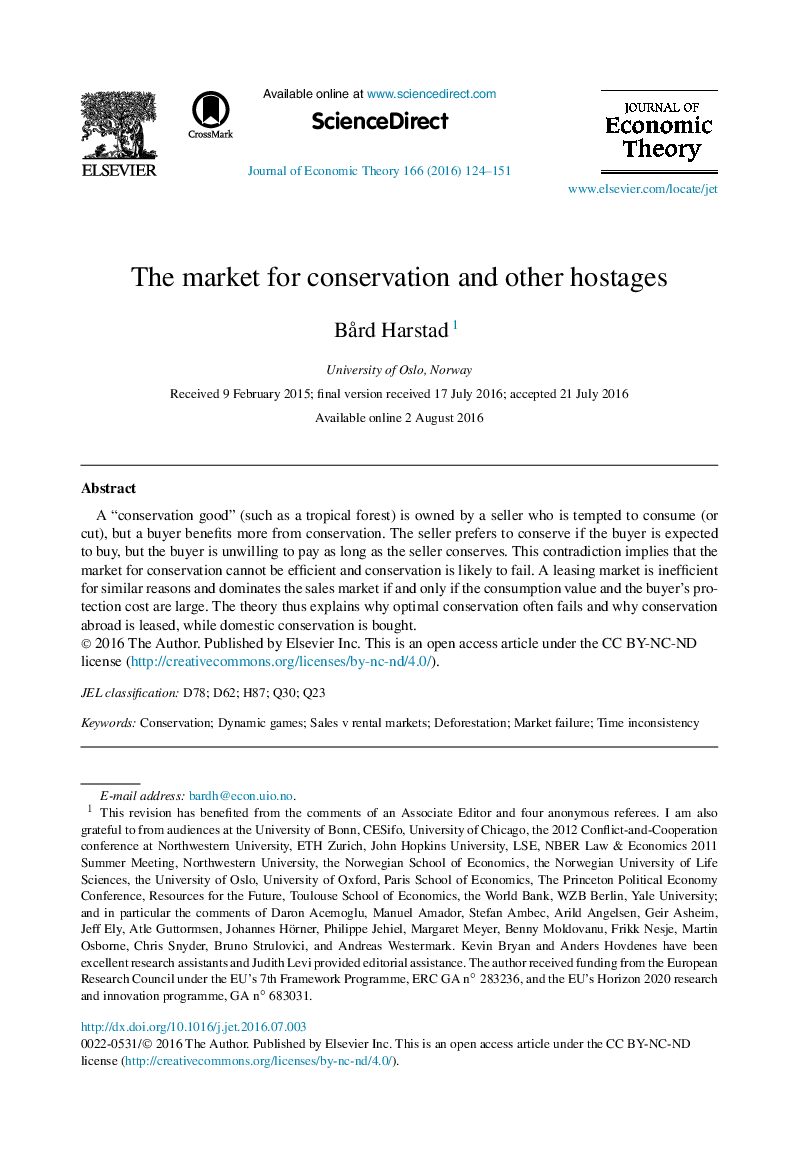| Article ID | Journal | Published Year | Pages | File Type |
|---|---|---|---|---|
| 7359364 | Journal of Economic Theory | 2016 | 28 Pages |
Abstract
A “conservation good” (such as a tropical forest) is owned by a seller who is tempted to consume (or cut), but a buyer benefits more from conservation. The seller prefers to conserve if the buyer is expected to buy, but the buyer is unwilling to pay as long as the seller conserves. This contradiction implies that the market for conservation cannot be efficient and conservation is likely to fail. A leasing market is inefficient for similar reasons and dominates the sales market if and only if the consumption value and the buyer's protection cost are large. The theory thus explains why optimal conservation often fails and why conservation abroad is leased, while domestic conservation is bought.
Related Topics
Social Sciences and Humanities
Economics, Econometrics and Finance
Economics and Econometrics
Authors
BÃ¥rd Harstad,
